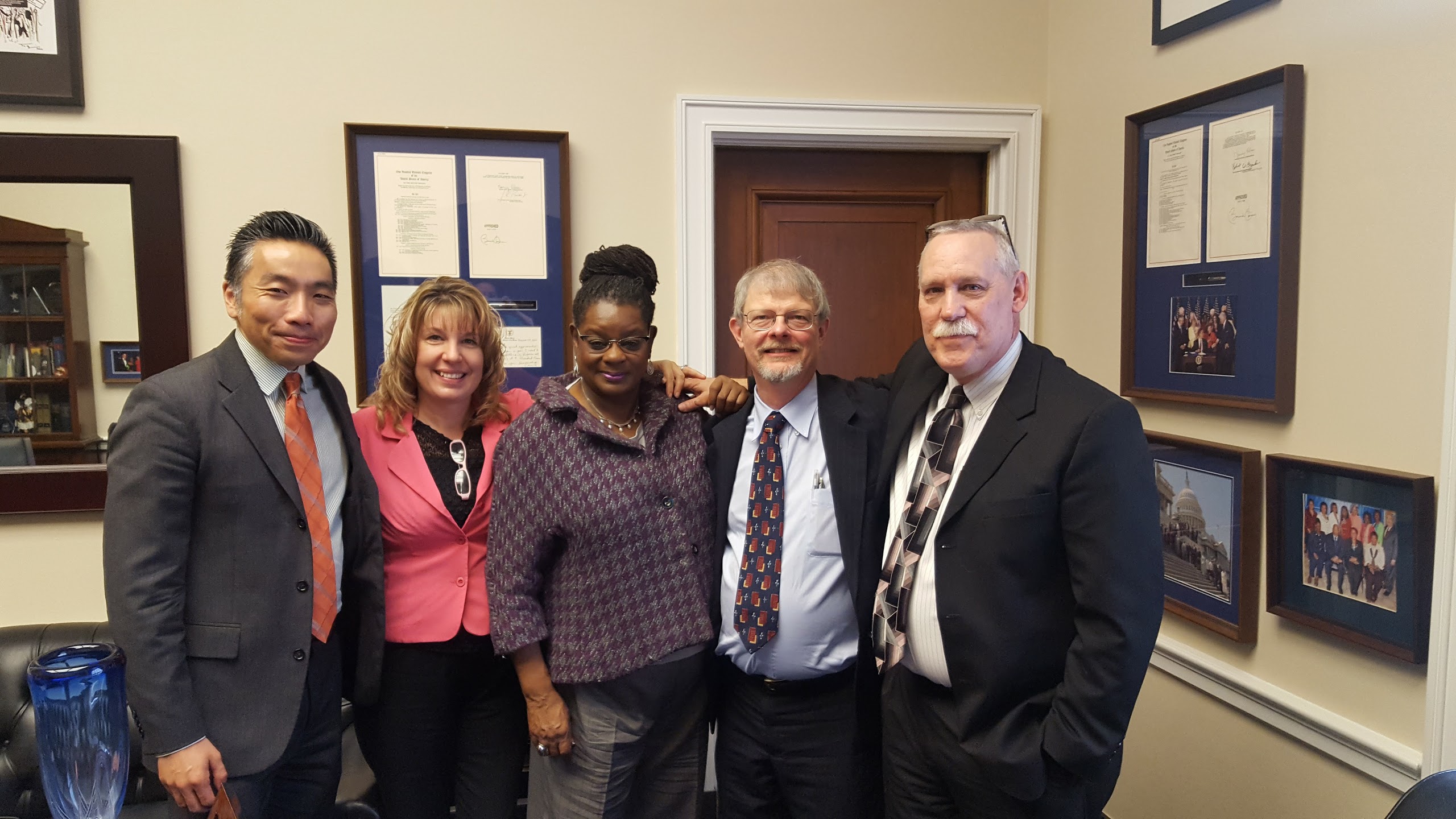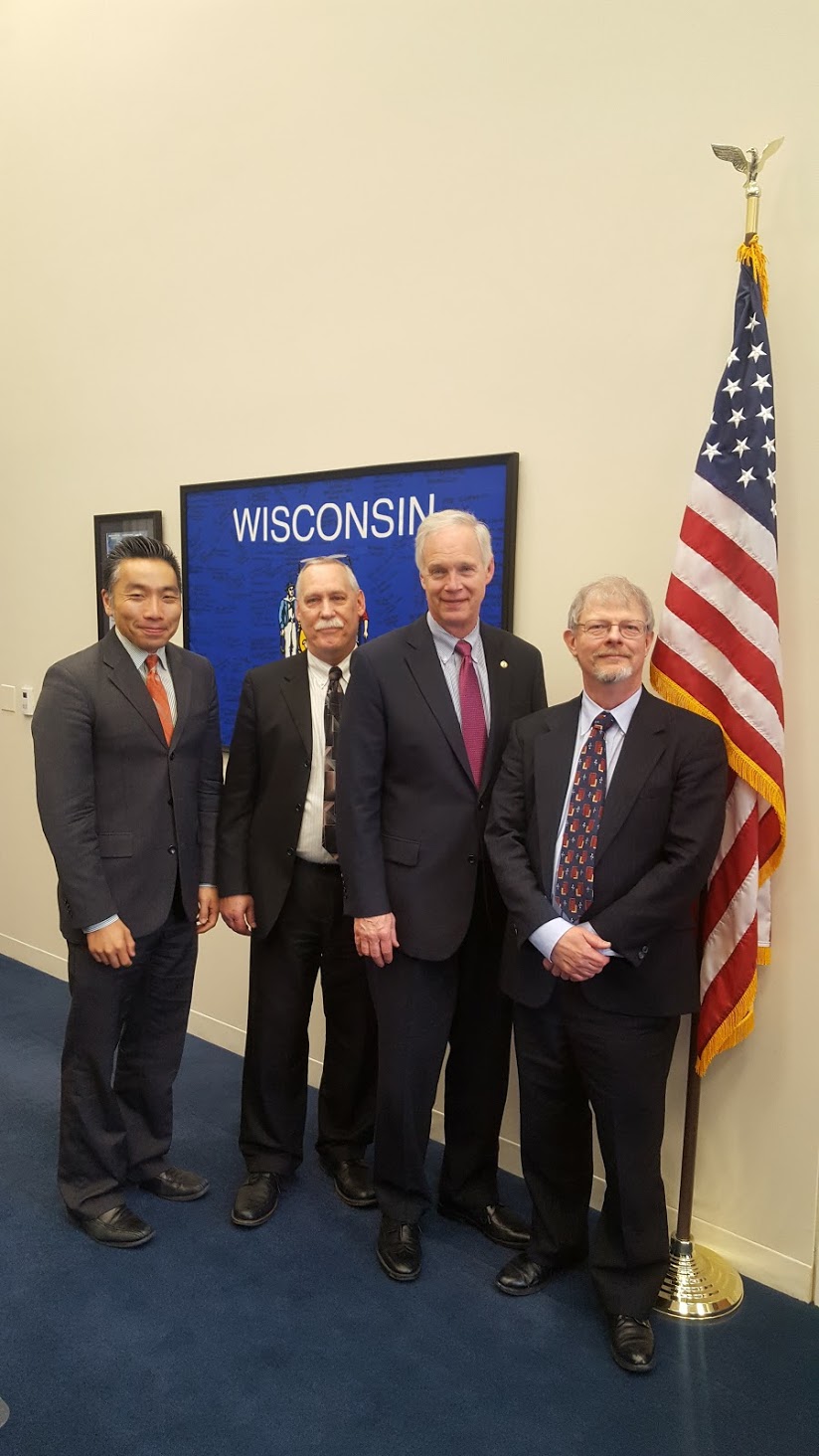2017 Lobby Visits
| Comments
Last week, we were in Washington DC for the annual National Anti-Hunger Policy Conference, where over 1,300 advocates from across the nation converged on our nation's capital for two days of best practice sharing, networking, and learning.
The conference culminated in our annual Hill Day where we took to Capitol Hill to visit our entire Congressional delegation to talk about our hunger fighting priorities for the year. With the uncertainties swirling in DC, it was more important than ever before for us to be there to tell the stories of the friends and neighbors we serve.
We met with every member of our House delegation and both of our US Senate offices and in each meeting, we discussed the vital and important promise that Wisconsinites and Americans have made to provide basic nutrition assistance to our friends and neighbors working through a tough time in life. We shared with them our principles for ensuring a strong SNAP (FoodShare) program for Wisconsin taxpayers and raised our opposition to any proposal that would block grant this important program.
 Our friends at the Wisconsin CAP association (WISCAP) spoke about the importance of The Emergency Food Assistance Program (TEFAP), the federal commodity program that they administer to local CAP agencies. Together, our networks facilitate the distribution of over $100 million dollars worth of food every year. That is a lot of food going through our affiliated food pantries and meal programs.
Our friends at the Wisconsin CAP association (WISCAP) spoke about the importance of The Emergency Food Assistance Program (TEFAP), the federal commodity program that they administer to local CAP agencies. Together, our networks facilitate the distribution of over $100 million dollars worth of food every year. That is a lot of food going through our affiliated food pantries and meal programs.
However, it's important to note that the SNAP program provides about $1 billion worth of vital food buying benefits to our friends and neighbors throughout the state.
That's 10 times the entire emergency food system! A 10% cut to the SNAP program in Wisconsin would wipe out all of the work of the charitable food system.
The federal nutrition programs work in partnership with the charitable food system to ensure all people have access to a bit of help when they are down on their luck. The charitable system cannot replace or replicate the scale and efficiency of the federal nutrition programs and federal nutrition programs can't replace the person to person contact that the charitable system provides. They are each necessary components of a working safety net and are complimentary, not duplicative.
While we were in DC to meet with our elected officials face to face, you don't have to fly all the way there to have the same impact. According to a 10-year Congressional Management Foundation study, direct constituent contact is the most effective in shaping the views of legislators. Making phones ring is great but emails are good too.
You can use our Elected Official locator to find the contact information of your federal, state or local elected official or you can personalize an email to them about your opposition to any block grants to vital nutrition assistance programs.
